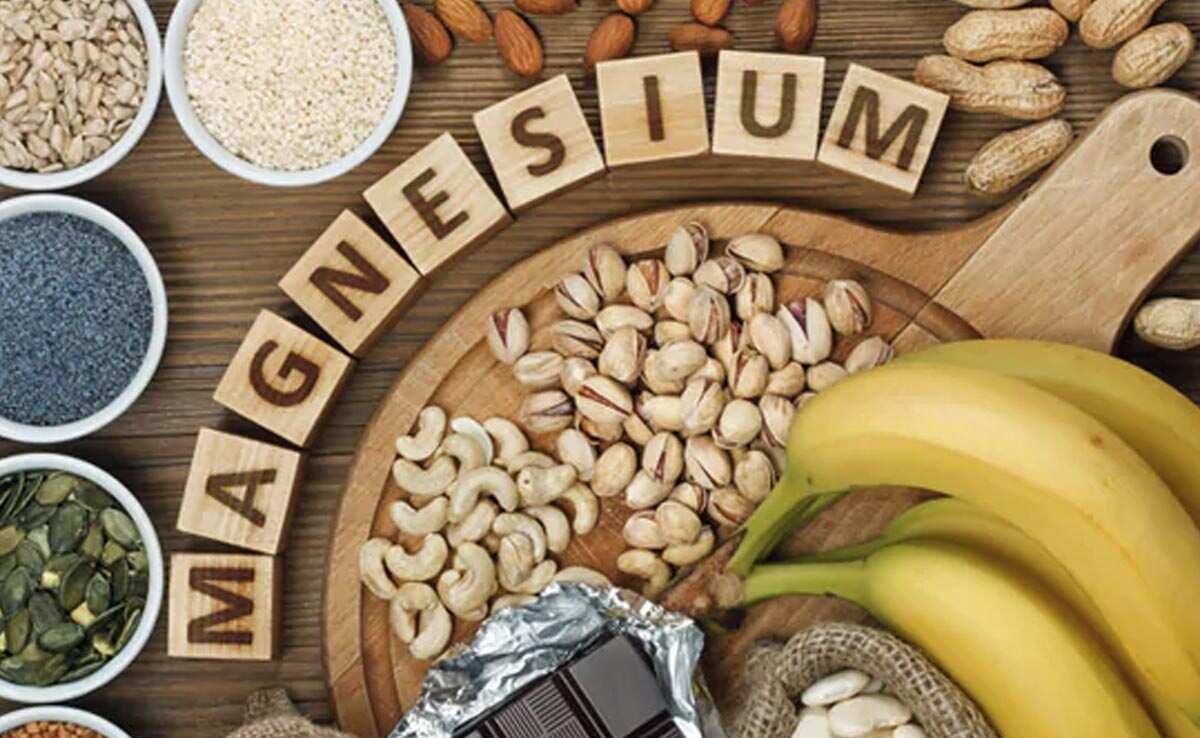Below we share list of foods to help increase your intake of magnesium in winter.

Consuming these foods in winter can help boost your magnesium intake
Magnesium is an essential mineral that is required for various bodily functions. It is involved in more than 300 biochemical reactions in the body, including energy production, muscle and nerve function, protein synthesis, and blood glucose control.
Magnesium plays a role in regulating neurotransmitters responsible for mood and relaxation, such as serotonin. Adequate magnesium levels may help combat seasonal affective disorder (SAD) and improve overall mood in winters. Keep reading as we share list of foods to help increase your intake of magnesium in winter.
Here are 10 foods you can add to your winter diet to increase your intake of magnesium:
1. Almonds
Almonds are a great source of magnesium. Consuming almonds in winter can help boost your intake of magnesium and provide numerous health benefits such as improved heart health, bone strength, and reduced risk of chronic diseases.
2. Spinach
Spinach is abundant in magnesium and other nutrients. Eating spinach during winter can aid in boosting magnesium levels, promoting healthy digestion, strengthening the immune system, and maintaining healthy blood sugar levels.
3. Pumpkin seeds
Pumpkin seeds are packed with magnesium and are a perfect winter snack. They can help boost your magnesium intake and provide additional benefits like improved bone health, reduced inflammation, and enhanced sleep quality.
4. Dark chocolate
Dark chocolate contains high amounts of magnesium. Enjoying a piece of dark chocolate during winter can help increase your magnesium levels and provide benefits like improved mood, enhanced cognitive function, and reduced risk of heart diseases.
5. Quinoa
Quinoa is a nutritious grain rich in magnesium. Incorporating quinoa into your winter diet can contribute to boosting magnesium levels and provide advantages such as improved digestion, increased energy, and better cardiovascular health.
6. Black beans
Black beans are one of the best sources of magnesium in winter. Consuming black beans can help meet your magnesium requirements and offer other benefits like improved gut health, lowered cholesterol levels, and enhanced brain function.
7. Avocado
Avocado is a nutrient-dense fruit that contains decent amounts of magnesium. Adding avocado to your winter meals can help increase your magnesium intake and provide benefits such as improved skin health, reduced inflammation, and better nutrient absorption.
8. Salmon
Salmon is not only a great source of omega-3 fatty acids but also contains magnesium. Eating salmon during winter can boost your magnesium levels and provide additional advantages like improved heart health, reduced risk of depression, and enhanced brain function.
9. Lentils
Lentils are a nutrient powerhouse, including magnesium. Consuming lentils in winter can help boost your magnesium intake and offer other benefits such as improved digestion, weight management, and reduced risk of chronic diseases.
10. Greek yogurt
Greek yogurt is an excellent source of magnesium and protein. Enjoying Greek yogurt during winter can aid in boosting magnesium levels and provide benefits like improved bone health, enhanced muscle recovery, and better gut health.
The exact mechanisms behind how these foods boost magnesium intake in winter involve their natural composition and nutrient content. These winter foods are typically rich in magnesium, which is an essential mineral involved in various bodily functions. Consuming them regularly during the winter season ensures an adequate supply of magnesium to meet your body's requirements.
Disclaimer: This content including advice provides generic information only. It is in no way a substitute for a qualified medical opinion. Always consult a specialist or your own doctor for more information. NDTV does not claim responsibility for this information.
DoctorNDTV is the one stop site for all your health needs providing the most credible health information, health news and tips with expert advice on healthy living, diet plans, informative videos etc. You can get the most relevant and accurate info you need about health problems like diabetes, cancer, pregnancy, HIV and AIDS, weight loss and many other lifestyle diseases. We have a panel of over 350 experts who help us develop content by giving their valuable inputs and bringing to us the latest in the world of healthcare.














